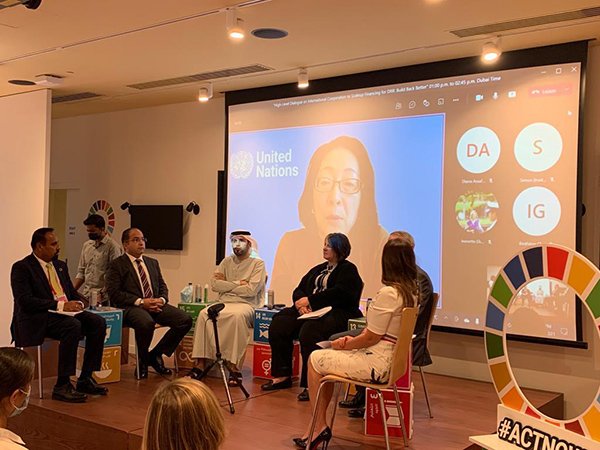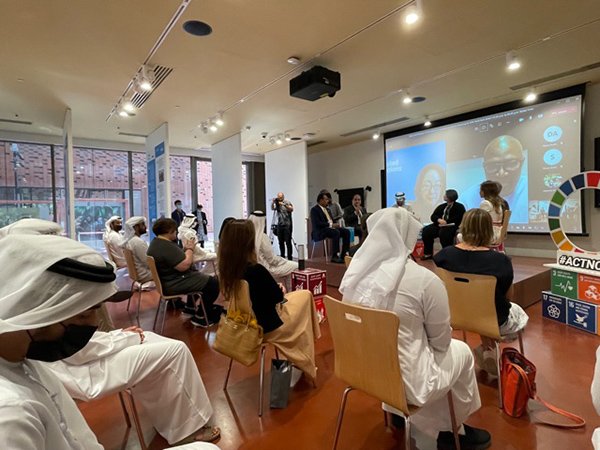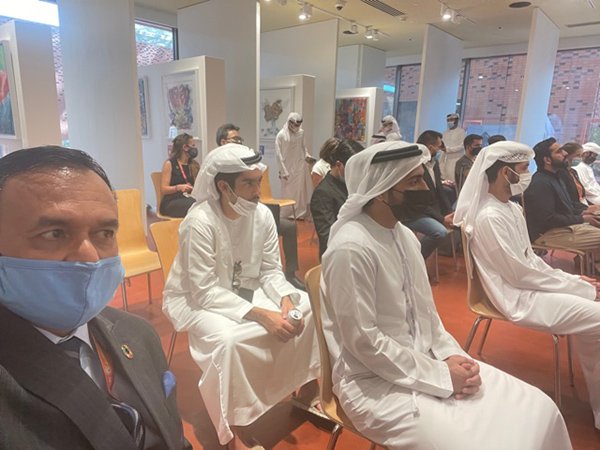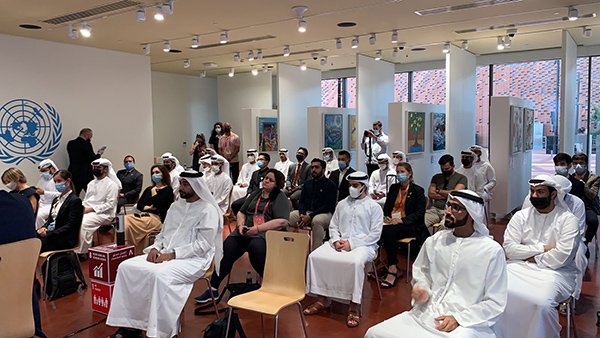"High-Level Dialogue on International Cooperation to Scaleup Financing for DRR: Build Back Better" at the UN Hub at Expo 2020
The United Nations Office for Disaster Risk Reduction, Regional Office for Arab States, organized a commemoration of the International Day for Disaster Risk Reduction this year by organizing a special session at the UN Hub at Expo 2020 Dubai.
The session was held under the title "High-Level Dialogue on International Cooperation to Scaleup Financing for DRR: Build Back Better" and brought together disaster risk reduction stakeholders to discuss collaborations, challenges, and steps forward towards delivering on the policy agenda agreed in 2015 when the Sendai Framework, the Agenda 2030 for Sustainable Development, the Paris Agreement, and other important frameworks were adopted or developed.
The session discussed the outlook to 2030, explored the needed actions, and elaborated on the current state of financing for DRR, challenges, and opportunities to enhance financing for DRR globally and develop plans and recommendations to scale up financing for DRR.
Mami Mizutori, Special Representative of the UN Secretary-General for Disaster Risk Reduction and Head of UNDRR, Dr. Dena Assaf, UN Resident Coordinator in UAE, Ibrahima Cheikh Diong, United Nations Assistant Secretary-General and Director-General of African Risk Capacity Group, Senator Adel EL-Lamei, Member of the Parliament in Egypt, Dr. Mahmoud Al Burai, Chair of ARISE UAE, Dr. James Anthony Morse, Academic President of the Rabdan Academy, and Sujit Mohanty Chief of UNDRR, Regional Office for Arab States, joined the session as panelists.
"There is a need for scaled and urgent funding for disaster risk reduction, which is pressing in developing countries," Mizutori said. "UNDRR calls for urgent action to strengthen international cooperation to optimally utilize limited resources and provide more technical assistance for self-reliance."
Throughout the session, the panelists highlighted the urgent necessity for funding in developing countries, which require an estimated $70 billion to meet their adaptation plans. But the figure could reach up to $300 billion in 2030, and $500 billion in 2050, according to the latest edition of UN's Adaptation Gap report, released in January 2021.
The trend for financing related to disasters has been on the increase since 2010; however, it is largely accounted for by activities undertaken in the aftermath of events rather than on prevention and preparedness.
The session came to increase awareness of the importance of funding for disaster risk reduction, highlight the importance of international cooperation and multilateralism to address planetary emergencies, identify the important role of the financial institutions in scaling up financing for DRR, and increase awareness of the role of international cooperation and public-private discourse to promote attitudinal and behavioral change towards disaster risk management.



